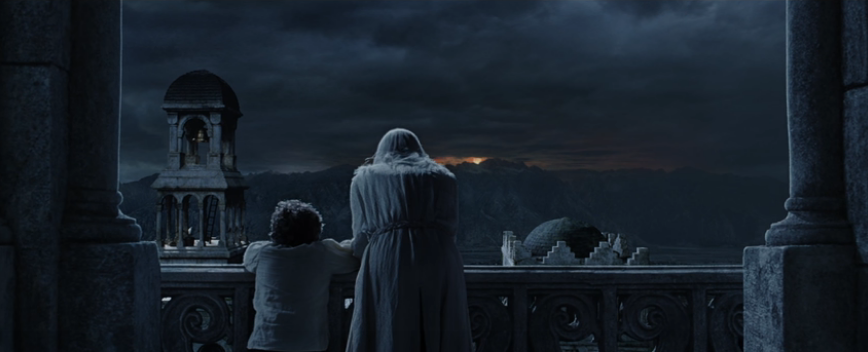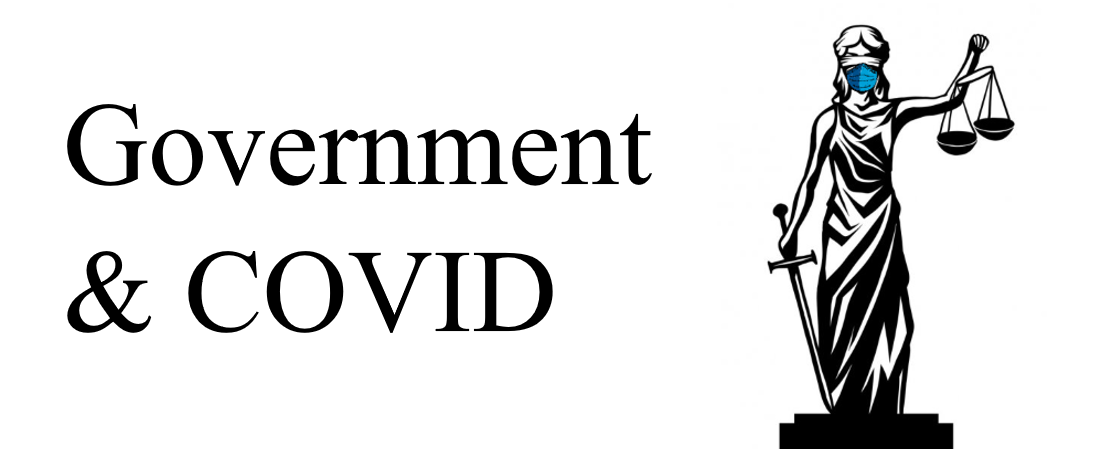Today we conclude our short series on disaster and the Lord. In part 1, we looked at the general principle of blessing following obedience and curses following disobedience which is seen throughout redemptive history. Yesterday, in part 2, we saw that it does seem to be a pattern in scripture that national disaster tends to follow disobedience, but on a personal level, suffering is not always the result of personal sin, since sin has social effects. Reading these posts is a helpful setup for this one.
And Finally…COVID-19
The last two posts have provided a short theological backdrop and setup which allows us to finally deal with COVID-19. One way of thinking about the pandemic would be to consider what the God of the Bible might be telling us. What we have suffered over the last year and a half is not random. It is all part of His plan. I claim no supernatural inspiration. But I do read the Scriptures, and the Scriptures teach that disaster is often used against nations because of their sin and idolatry. Furthermore, let us acknowledge, that God has every reason to punish the Western world for their covenant-breaking and idolatry. We, who once placed God at the very centre of our social lives have for decades been steadily changing our values and allegiance. God says “Thou shalt not commit adultery” and we have allowed no-fault divorce and have refused to sanction those who break the sacred covenant of marriage. God says “Thou shalt not kill” and our hands are red with the blood of tens of thousands of unborn children. God says, “Thou shalt not steal”, and with envious hearts, we attempt to legitimise and call ‘good’ the theft of our neighbour’s goods through the redistributive state. God says, “Thou shalt not covet”, and we have made an art of it, envying successful groups and demonising them in the name of social justice.
Yet these are only sides accompanying our main. They are simply indicators of our great sin. God says, “Thou shalt have no other gods before me” and we have bowed down to many other idols. One of our national idols is the idol of state. Do you doubt me? Whose name has been hallowed such that criticism is almost sacrilegious in this crisis? Whose will is done on this patch of earth as God’s will is in heaven? Who do we look to to give us this day our daily bread when we lose our jobs? Who do we expect to deliver us from this evil? Who have we given radical power and dominion to with nary a second thought? Who do we expect to care for us in our old age if we don’t have enough money to cover things? Whose benefits are we expected not to forget if not the state who heals all our diseases, who redeems our life from the pit and crowns us with loving#bekindness and compassion and who satisfies us with good things? Who do we look to when things go wrong? Who do we expect to train our children? Who do we look to provide answers to every crisis from poverty, to housing to health and education?
Can we doubt at the very least the possibility that COVID-19 is a divine curse on our rejection of God and the breaking of the covenant of creation with him and turning to the state as our redeemer? And if it is, who could deny that it is richly deserved? God has often highlighted the impotence of idols in redemptive history. The very thing that people trust is shown to be empty, worthless and vain. Who could say that Western governments have managed this pandemic well? Have any of them come out of this looking like an omnipotent deity, or just petty tyrant clowns clutching at straws? It’s clearly beyond them. They are shown to be impotent by a microscopic virus. He that dwelleth in heaven is surely laughing!
At this point, there are two options. A nation and its leaders can take note of God’s hand of judgment and turn to Him in repentance. That would be wise. Wise, but uncommon. Idolatry tends to lead to blindness and folly. Rather than turn and be saved, people blindly think that what they need is more of their idol, not less. Frequently in redemptive history, people needed to suffer under the heavy hand of their idols for a long time before they turned in repentance to God.
In New Zealand, and in much of the Western world, there are not too many encouraging signs at this point. Instead of looking at our idol of state and seeing its impotence to save, we have doubled down like rebellious fools. Our idol promises that with ever more power and excessive regulation they will save us, but instead they enslave us. Unlike the God who creates from nothing, they cannot manufacture wealth and are plundering our children and grandchildren in their fruitless attempts at deity. In all this, the reality is that we are just increasing the wrath stored up against us and prolonging the pain that we as a people will suffer.
The call to all who have eyes to see is to repent. Let us repent of our idolatry of state. It cannot save, and is being shown for impotent idol it is. Repentance ought to start with the household of God, which has not been completely innocent in this idolatry. We have unfortunately been complicit. We have wanted our children educated at someone else’s expense. We’ve enjoyed not needing to use our tithes to help the poor among us since we’ve outsourced that. We’ve failed to speak and apply God’s Word to the politics of envy-driven redistributive government. We’ve not held the marriage bed to be honourable and suffered immorality to be named among us. We must repent and commit to living out God’s laws in our lives and calling our brothers and sisters to do the same. Then we must commit to the Great Commission, calling our fellow citizens to turn from their evil ways, embrace the king and his laws and live.


